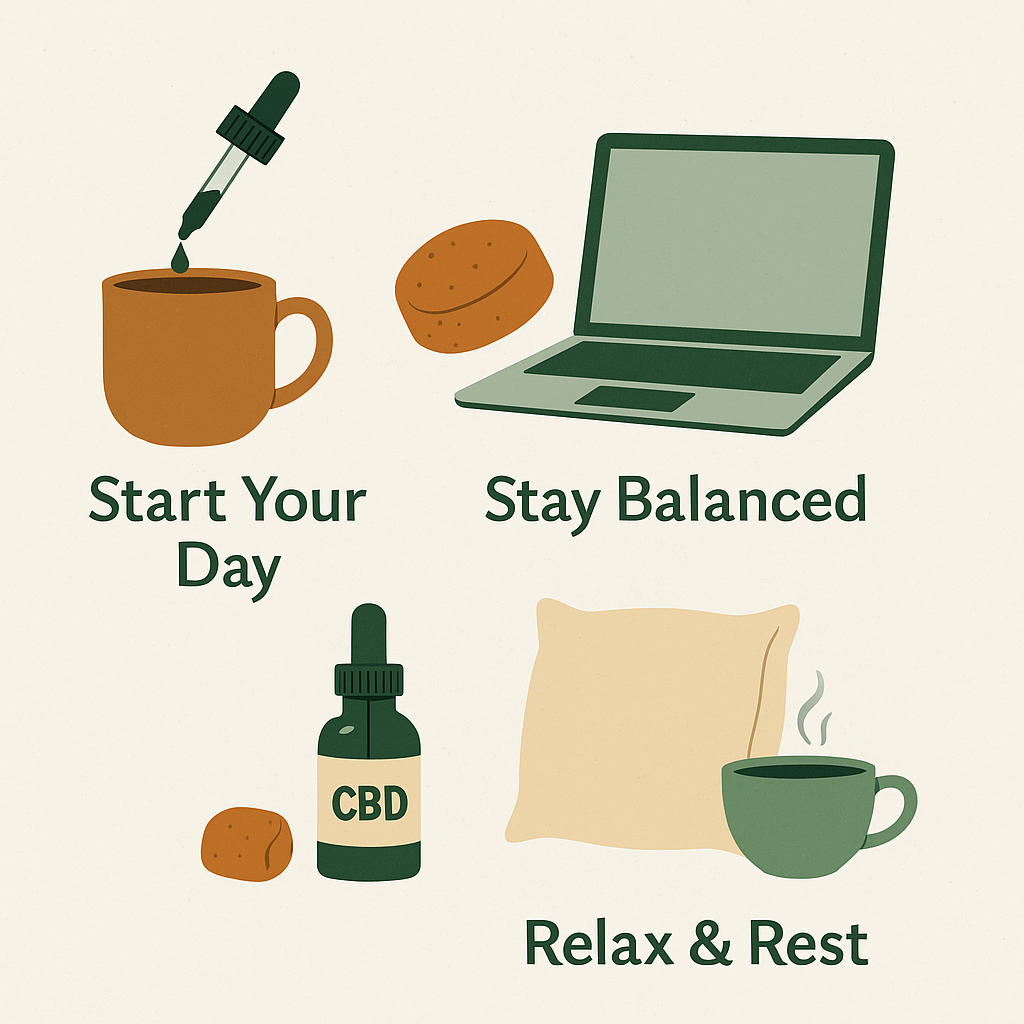Struggling to get a good night’s sleep can be incredibly frustrating and can impact nearly every aspect of your life. In today’s fast-paced world, more and more people are seeking natural remedies to help them achieve restful and rejuvenating sleep. Among the most popular and effective options are CBD (cannabidiol) and THC (tetrahydrocannabinol), two compounds found in the cannabis plant. Not only do they offer a natural alternative to traditional sleep aids, but they also come with a host of additional health benefits. In this blog, we’ll explore how CBD and THC can help you “sleep like a baby” and provide tips on how to incorporate them into your nightly routine for the best results.
Understanding CBD and THC
Cannabidiol (CBD) and tetrahydrocannabinol (THC) are two of the most well-known compounds found in the cannabis plant. While both have garnered attention for their potential therapeutic effects, they differ significantly in their impact on the body and mind. Unlike THC, which is psychoactive and can induce a “high,” CBD is non-psychoactive and is celebrated for its calming and relaxing properties. These distinct characteristics make CBD and THC popular choices for individuals seeking natural alternatives to support their sleep.
The Science Behind Sleep and Cannabinoids
Researchers have discovered that cannabinoids interact with the body’s endocannabinoid system (ECS), a complex cell-signaling system that plays a crucial role in regulating various physiological processes, including sleep. The ECS helps maintain balance in the body, and endocannabinoid receptors found in the brain and nervous system can influence sleep-wake cycles. By modulating the ECS, CBD and THC can help promote better sleep quality and duration.
How CBD Promotes Restful Sleep
CBD is known for its anxiolytic (anxiety-reducing) and sedative effects, making it a popular choice for those who struggle with insomnia or anxiety-related sleep disturbances. By reducing anxiety and stress levels, CBD can help create a more conducive environment for falling and staying asleep. Additionally, CBD has been shown to reduce REM sleep disorder, a condition in which individuals act out their dreams, leading to more peaceful sleep.
The Role of THC in Sleep
THC, on the other hand, may be beneficial for individuals dealing with conditions like chronic pain or sleep apnea, as it has potent pain-relieving and muscle-relaxing properties. By alleviating pain and discomfort, THC can make it easier for individuals to fall asleep and enjoy uninterrupted rest. However, it’s essential to use THC responsibly, as higher doses can lead to excessive sedation or grogginess upon waking.
Dosage and Considerations
When incorporating CBD or THC into your nightly routine, it’s crucial to start with a low dose and gradually increase it until you find the optimal amount that works for you. Everyone’s body responds differently to cannabinoids, so a personalized approach is necessary. Additionally, consulting with a healthcare professional can provide valuable guidance, especially if you are currently taking other medications or have underlying health conditions.
Embracing the benefits of CBD and THC can pave the way for more restful nights and improved overall well-being. By understanding the differences between these two cannabinoids and their unique effects on sleep, you can make informed choices that align with your health goals. Whether you’re dealing with anxiety, chronic pain, or other sleep disturbances, exploring natural remedies like CBD and THC may be the key to sleeping like a baby.





